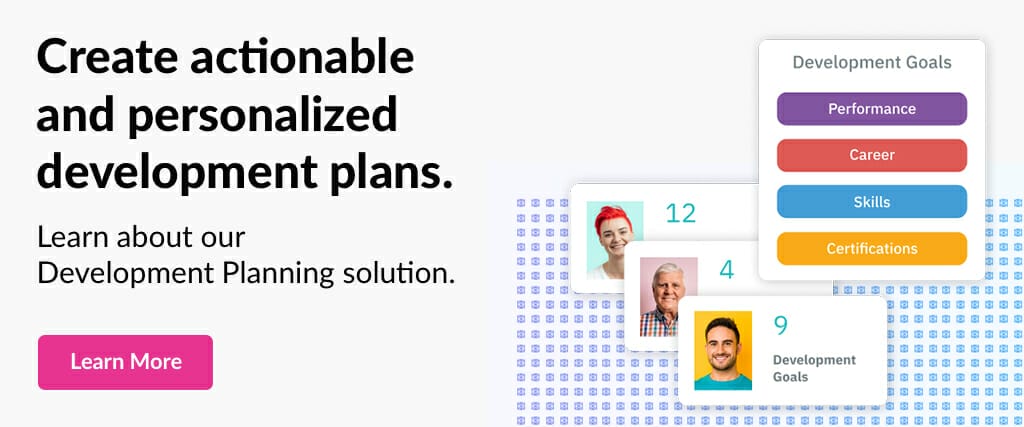How to Prepare Managers for Upskilling

To meet the challenges of digital transformation, changing market demands, and talent shortages, organizations must prepare managers for upskilling as both leaders and learners. By equipping them with the tools, knowledge, and strategies needed to develop their teams effectively, businesses can foster a culture of continuous learning and innovation, ensuring long-term success in a competitive landscape.
Addressing skill gaps begins with assessing the current workforce and creating a proactive plan to counter the rapidly shortening half-life of skills. An ideal upskilling initiative should dynamically track current capabilities, forecast future needs, and establish a clear development pathway for employees. However, before implementation, it’s essential to ask: are your managers ready to lead this organizational change? Alarmingly, a recent survey found that only 18% of CEOs reported significant progress in their upskilling efforts. To optimize the outcomes of costly business initiatives, it’s critical to first identify and address potential blockers—chief among them, insufficient preparation of management teams.
New programs or technologies added to managers’ responsibilities often meet natural resistance. Concerns like implementation difficulty, time investment, and impact on team goals can hinder enthusiasm. Managers play a vital role in driving company-wide change, and taking the time to prepare them not only fosters buy-in but also ensures better communication and adoption across the organization.
When launching a development strategy, many organizations look to managers to lead the charge. However, studies show that 65% of managers themselves need upskilling or reskilling, particularly in human skills like agility—the ability to adapt and guide teams effectively through change. A well-prepared manager with strong leadership capabilities becomes a champion of employee development, enabling upskilling initiatives to succeed amid shifting workforce demands.
How to Prepare Managers for Upskilling
Lead with Transparency
Proper implementation should invest in assessment of the current workload of your leaders and provide resources into proper training on your upskilling program. Transparency of your organizational goals is also an important step to building trust in the implementation. Organizations need to be clear on the path and desired benefits of new technology and processes and share these with managers before on-boarding the entire workforce. Offer time for those in charge to assess the plan and provide feedback on their concerns to help build a plan with them in mind. Additionally, make sure to check in with them at important milestones for feedback and adjustments if necessary.
Communicate the Benefits of Upskilling
Once your managers better understand the goals of your development program, make sure to review ‘the why’ with them. While it is obviously beneficial to your business to close skill gaps, what are the benefits to your managers? Upskilling helps:
- Managers understand efficiency gaps and know that they are being worked on.
- Managers understand the skills employees wish to improve on, leading to better engagement.
- Employees creates more proficient team members leading to better results.
- Employees frees up management time previously spent on supporting employees in areas needed for improvement.
- Employees to develop their skills for the long-term, allowing managers to have high-performers for longer.
It’s clear to see that upskilling employees benefits managers. Let’s take a look how that is done. Skills assessment is the first step in an upskilling program. We can’t identify where skill gaps lie if we’re unsure of what skills people currently process. An intuitive software can then match people skills to their desired career goals and show what skills and competencies they are missing for advancement. This allows for much clearer conversation between managers and employees on what they should be working on. As employees develop, they become more proficient in their current and future job skills. This also allows for employees to take the driver’s seat on their development, basing it on their individual interests. Personalizing development in this way can help increase employee engagement and satisfaction for all the employees on a manager’s team. This can also help managers see where employees are stuck and help increase productivity across their team.
Taking the time to invest in manager development, helping them lead adoption efforts and better communicating benefits can help ensure good adoption and success across the organization. When your managers are better prepared and have a way to connect easily with employees through skill assessment and development, they can help increase productivity and eliminate roadblocks faster. John Maxwell made the statement “People quit people, not companies.” in his book, Leadership Gold and a study by Gallup showed that 50% of Americans have left a job to “get away from their manager at some point in their career”. One of the overlooked facts of retention and operational efficiency is that quality leadership matters. When beginning your upskilling program, assessment should begin with your managers. If you can get your trusted people on board with your organizational goals, you can ensure adoption from the top down to help set everyone up for success.
To learn more about how to prepare managers for upskilling, request a demo.
See a preview of TalentGuard’s platform
Developing Internal Talent: What You Might Be Missing
Developing Internal Talent: What You Might Be Missing Organizations across the United States and the world are suffering from a lack of talent as they continue to expand. Businesses are struggling to fill key roles that can help ensure the long-term growth of the company. The pandemic has changed the ways that employees see work […]
Create Adaptability in the Workforce with Skills Training
As the ‘future of work’ begins to assume a more defined shape, the majority of employers are leaning towards training of their existing talent, rather than hiring, but skills development is not moving fast enough to keep up with demand. Ongoing upskilling and reskilling can help to offset the impact on your workforce from these fundamental changes. Understanding which training methods are the most effective for new skills acquisition is therefore paramount.
Reskilling and Upskilling: A Strategic Response
The 2018 Future of Jobs Report from the World Economic Forum predicts that 75 million jobs will be displaced by 2022 in 20 major economies. At the same time, 133 million new roles are expected to be created, driven by advances in technology and continuous digital transformation.
As demand for new capabilities gathers pace, reskilling and upskilling can enable your organization to develop the skills needed to remain competitive.





